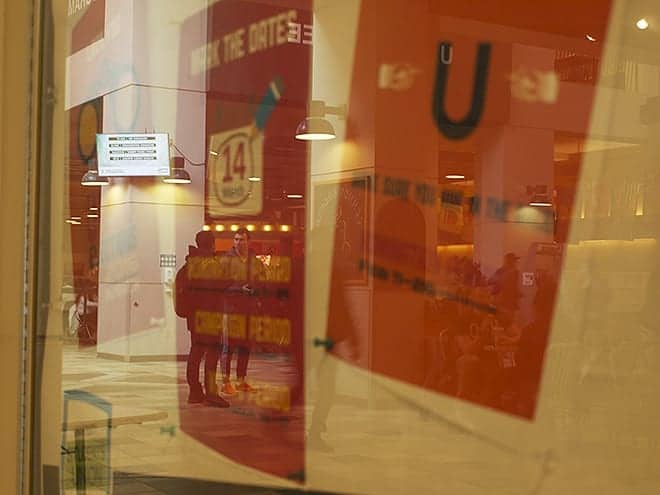Give us a reason to vote

Future is Now campaign sends direct message to politicians
Sophie Long
News Writer
Creating awareness of university-related issues within political parties and encouraging students to vote in the Nov. 7 provincial election are two of the main items on the agenda of the University of Regina’s Student Union “Our Future Is Now” campaign, which began on Oct. 12.
The campaign is URSU’s effort to get parties to agree to several student-related platforms before the provincial election. In return, Peterson is offering the promise of students’ votes, although there is no guarantee that students will vote for any specific party.
“’Our Future is Now’ focuses on five main issues: the skyrocketing rate of tuition, a lack of affordable housing, a need for additional childcare spaces, First Nations and aboriginal accessibility to post-secondary education, and student voting,” said Peterson in a letter announcing the campaign in the Oct. 6 issue of the Carillon.
For one of the campaigns events, URSU hosted a mock memorial at the Legislative Building for “Stu Dent”, a teen whose potential was wasted due to his inability to afford tuition.
On Oct. 19, URSU got 130 students to participate in a “fax mob”, in which students filled out fax invoices addressing student debt and access to education that URSU then used to flood the fax machines of Dwain Lingenfelter and Brad Wall.
To increase the number of student voters, there are plans to hold an event for the campaign every Wednesday until Election Day. However, when asked, some U of R students didn’t even know about the campaign.
“I think the campaign could work if there’s enough publicity to the student body,” said Melissa Stevens, a fourth-year education student. “It would really be the students who would have to make it work.
It appears the campaign has caught the attention of three parties in Saskatchewan: the Sask Party, the New Democrats, and the Liberal Party.
The NDP’s platform acknowledges all of Peterson’s requests. The Liberals agreed to eliminate the “family income” section of student loans, as many students do not have the support of their parents.
The Sask Party announced two initiatives to ease the financial burden upon students, but URSU’s executive doesn’t believe they go far enough. The first is the Saskatchewan Advantage Scholarship, which would grant every high school graduate in Saskatchewan 500 dollars a year towards education, up to $2,000. The second program is the Grant for Education Savings, with works with government RESPs to put ten per cent savings into a child’s RESP each year, up to $250 a year.
Both of these initiatives are expensive ones, but they would not help current students who are suffering the cost of education.
“Those who have money to put aside will get more money to put aside,” Peterson said. “If a family cannot afford to set aside money in the first place this program will not help them whatsoever.”
Although the campaign manages to confront many issues, some believe MLAs’ time could be better spent.
“It’s the right issues for university students, but there are larger issues in this province,” Stevens said.










